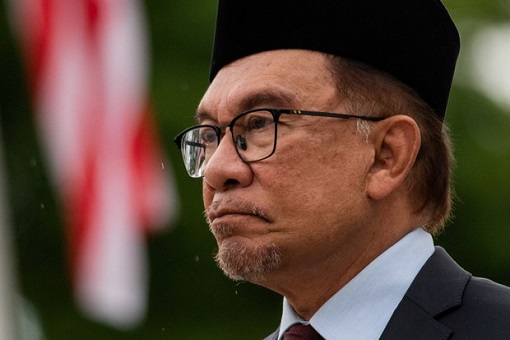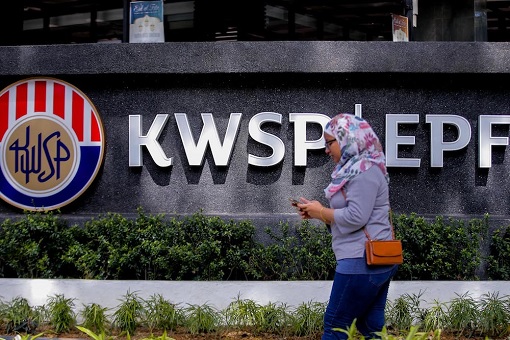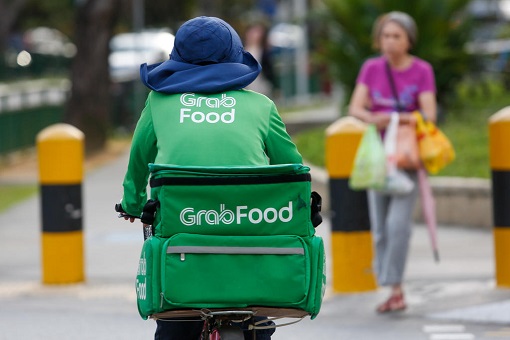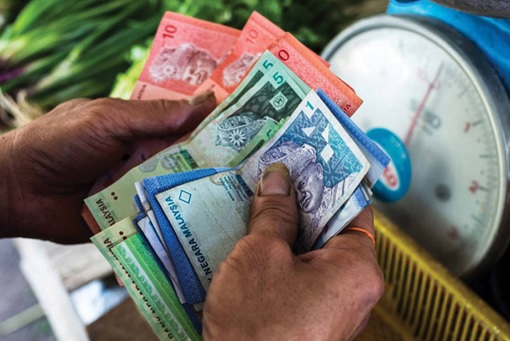Prime Minister cum Finance Minister Anwar Ibrahim has bulldozed two important policies for workers during last Friday’s presentation of the Budget 2025. It was actually a brilliant and bold policy to ensure fair treatment for all workers – regardless of nationality. Mr Anwar should be given the Nobel Peace Prize as for the first time, he has put aside racism and discrimination.
First, he increased the minimum wage from RM1,500 to RM1,700. Then he imposed EPF contributions of 12% to 13% for foreign workers, translating to an additional RM204 to RM221 on top of the RM200 salary boost. In total, workers who are currently earning RM1,500 will enjoy a sudden windfall of between RM404 and RM421 with the new minimum wage rate effective February 2025.
It was absolutely brilliant because right after Anwar’s proposal, kindergarten and nursery school across the country announced fees rise of between 20% and 25% next year. The Islamic Kindergarten Association of Malaysia (Pertim) and the Johor Education Institution Educators Association said the increase in fees is inevitable due to increasing operating costs.

The Math isn’t difficult. An increase in minimum wage and the compulsory EPF contributions would translate to between 27% and 28% more for each worker – in line with the nursery schools’ fees rise of 25%. This is a classic example of passing down rising cost of doing business to consumers, just in case the genius finance minister still hadn’t figured it out.
And it was incredibly bold because right after Anwar’s unexpected decision, the shocked Federation of Malaysian Manufacturers (FMM), Master Builders Association Malaysia (MBAM), Small and Medium Enterprises (SME) and practically every employer have opposed the government’s plan to force them to pay mandatory Employees Provident Fund (EPF) for non-citizen workers.
And it’s not hard to understand why they were upset. MBAM president Oliver HC Wee said – “With approximately 500,000 legal foreign construction workers currently in Malaysia and the minimum wage set at RM1,700, employers would be required to contribute 13% to the EPF. This translates to an additional financial burden of an estimated not less than RM110 million per month for the construction industry.”

With approximately 2.5 million foreign workers in Malaysia, this would amount to RM552.5 million per month or RM6.63 billion annually (not all foreign workers earned less than the minimum wage, mind you). The additional cost for expatriates would be around RM1.5 billion per year, resulting in a total estimated additional burden of RM8.13 billion annually for Malaysian businesses.
Already, there are other levies on foreign workers. The increase in wages with mandatory EPF contributions would raise the cost of doing business by about 46%, further straining employers’ cash flow. It was already bad thatthe government imposed a blanket minimum wage on all workers. It becomes worse when even non-citizen workers enjoy EPF meant for Malaysian citizens.
Yes, even neighbouring Singapore does not have such policies. In Singapore, CPF contributions are only payable for Singapore Citizens and SPRs (Singapore Permanent Residents). For foreigners who wish to save voluntarily for their own retirement, they may instead consider Supplementary Retirement Scheme (SRS). Foreign workers in Singapore pay a levy instead of CPF.

Even the Foreign Worker Levy in Singapore depends on two factors – the worker’s qualifications, and the number of Work Permit or S-Pass holders hired. Essentially, workers who possess relevant academic or skills-based test qualifications and certificates will be considered as higher-skilled workers and qualify for higher skilled worker levy – enjoying lower levy.
There’s a reason why foreign workers are being imported in the first place – they are cheap, and they are more than happy to have a job that pays RM1,500 compared to the deplorable job market back in their home country of Bangladesh, Pakistan, Sri Lanka, Indonesia and India. That’s how Singapore differentiates between local workers and foreign workers, who are further categorised according to their skill sets.
Does Mother Therasa Anwar think this is a communist or a socialist country, where everyone shares equally? Given a chance, he probably might force employers to contribute EPF nest egg for the retirement of Ismail Haniyeh, Yahya Sinwar, Hassan Nasrallah and other Hamas and Hezbollah members in the name of Muslim Brotherhood. Employers are running profit organizations, not a charity house.

With rising raw material costs, labour shortages, and competition, attempts to interfere in the business ecosystem with a sudden salary jump and EPF contributions will definitely increase operational expenses. Of course, Mr Anwar had no idea how a business functions. That’s why the clueless man lectured private companies to learn from Khazanah Nasional Berhad’s minimum wage of RM3,000 per month.
The simple fact that the prime minister was even comparing the country’s sovereign wealth fund with some private companies speaks volumes about his incompetence and ignorance. Khazanah has no problem paying 12 months bonus even if 90% of its employees were sleeping on the job because the fund manages US$35.8 billion (RM155 billion) worth of national assets, recording RM5.9 billion profit in 2023 alone.
Sure, go ahead and increase the minimum wages regardless of productivity. That’s the lazy way of becoming a hero without looking at the fundamental problems as to why local workers were underpaid in the first place. It has everything to do with the education system that prioritizes religious studies instead of science and technology, and previous Mahathir’s policy of cheap labour to lure foreign investments.

However, Anwar, who was part of Mahathir administration (1982-1998) and the Education Minister (1986-1991) who screwed up the education system with radical Islamization, should not force local companies to pay EPF for foreign workers from Bangladesh, Pakistan, Nepal, Sri Lanka, Indonesia, India and whatnot. The reason is simple – they don’t retire here in Malaysia.
Perhaps it’s a gimmick or a scam to replenish the Employees Provident Fund by robbing from local private companies after having depleted RM155 billion through four premature withdrawal programmes since 2020. Because foreign workers can’t withdraw their retirement funds till 55 years old, chances are billions of dollars would be “stuck in EPF” and voila, the money becomes EPF’s property.
Thanks to Budget 2025, Finance Minister Anwar single handedly pushed up inflation by 25% in the pre-education sector alone. If you think this does not affect you, think again. From chicken rice to bubble tea, and from nursing home to real estate, they will cost more. If you don’t see them, that’s because “shrinkflation” – reducing the size of a product while maintaining its sticker price – is doing its magic.

Just because the government brags about low inflation of 2%, it does not mean the cost of living has gone down. It just means prices are rising more slowly than they had been. You may still find yourself paying more at the grocery store or the doctor’s clinic than before the pandemic. The price of eggs, milk, chicken, electricity, medicine, and raw materials remain high despite strengthening local currency Ringgit.
This is the biggest reason why people are unhappy about the economy, even though PM Anwar Ibrahim says it is booming. What people want is prices coming down. But with the minimum wage going up and EPF for foreign workers, the cost of living is expected to remain high. And we haven’t even talked about cutting RON95 petrol subsidy next year.
Rubbing salt in the wound, the bottom class B40 consisting of 3.16 million households earning less than RM5,250 as well as 3.16 million middle class M40 (household income between RM5,251 and RM11,819), who were neither here nor there, would be the most affected. Instead of taking care of foreign workers’ retirement fund, the government should look into how to increase wages of the B40 and M40 instead.

Other Articles That May Interest You …
- Worse Than Muhyiddin & Sabri – PM Anwar To Design Luxurious “House Arrest” For Prisoner Najib (And Maybe For Himself)
- GISB Religious Schools Sodomy Scandal – A Humiliation To JAKIM, Fake Holy Men & Ultra Malays Calling Non-Malays Kafir Harbi
- Tiger Beer’s Donation For Chinese Schools – DAP Should Withdraw Support If Anwar Govt Bans The 30-Year-OId Charity
- Told You So!! – PM Anwar Finally Admits The Influence Of Jews-Linked BlackRock In Financial System & Stock Market
- 3 Million Rush To Withdraw RM5.52 Billion – Either People Still In Financial Distress Or Digging A Bigger Hole In EPF
- Record 13% Pay Hike For Civil Servants – Get Ready For Subsidy Cuts, Skyrocketing Inflation And Even Recession
- Truth Hurts – The Real Reason Why PM Anwar Went Berserk And Called Gilley A “Mediocre” Professor
- Boycott Gone Sour – Malays Returning To McDonald’s Insulted And Called “Dogs” & “Pigs” By Fellow Malays
- Single School System – Scrap National Schools And Promote Vernacular Schools To Foster National Unity & Racial Harmony
- Conventional 5.5% vs. Syariah 5.4% Dividend – Suspicion Over Hanky-Panky In Diverting EPF Dividends To Syariah
- Taylor Swift’s S$500 Million Economic Impact – How Singapore Cleverly Got An Exclusive Deal For The Pop Star

|
|
October 23rd, 2024 by financetwitter
|


|

|

|

|

|

|




























Comments
Add your comment now.
Leave a Reply